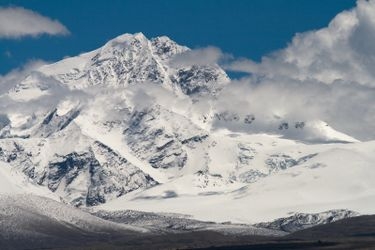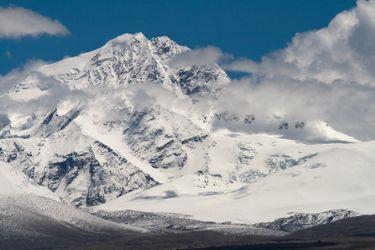Why climb in Tibet
Tibet offers a unique high-altitude mountaineering experience like no other, with vast plateaus, remote landscapes, and towering Himalayan giants. Known as the "Roof of the World," Tibet has a mystical appeal that draws climbers seeking both spiritual and physical challenges. With peaks such as Shishapangma, Tibet is ideal for climbers wanting to experience high-altitude expedition climbing in one of the most isolated regions on Earth.
When to climb in Tibet
- April and May
- September
The best climbing season in Tibet is from late spring (May to June) and early autumn (September to October), when weather conditions are most stable. Monsoon season and winter bring harsh conditions, making climbing attempts risky and difficult during those times.
Where to climb in Tibet
Most climbers focus on the Himalayan Range in Tibet, especially around the regions that host peaks above 8,000 meters. Shishapangma and nearby mountains provide formidable challenges and are popular with those interested in high-altitude ascents without the crowding found in other parts of the Himalayas.
Climbs in Tibet
Most popular
The classic climbs in Tibet:
All climbs in Tibet
Shishapangma, standing at an impressive 8,027 meters, is the 14th highest mountain in the world and the only one entirely within China and Tibet. It's often considered a bit of a hidden gem among the 8,000-meter peaks, partly due to its remote location in the Tibetan Himalayas. Unlike some of its more famous brethren, it doesn't have the same level of commercialization, which is a blessing if you’re seeking solitude. The mountain offers a variety of routes, but the most commonly attempted is the North Ridge, starting from the base camp at around 5,000 meters. From there, climbers typically set up three more camps before the summit push.
The climb itself is more straightforward compared to the technical challenges of peaks like K2 or Annapurna, making it a popular choice for those looking to bag their first 8,000-meter summit. However, don’t let the relative simplicity fool you; the altitude and weather conditions can be unforgiving. The mountain has seen its share of mishaps, and the weather can turn quickly, so solid acclimatization and preparation are key. The final push to the summit involves navigating through snowfields and potential cornices, so timing and route-finding are crucial to a successful ascent.
In spring and autumn, the weather is usually more stable, making these the preferred seasons for an attempt. Keep in mind that even though Shishapangma might not require the technical prowess of the more treacherous peaks, the sheer altitude demands respect and careful planning. If you're considering an expedition, you’ll find that there are 19 guides offering climbs up Shishapangma, providing a range of options for those looking to undertake this magnificent journey.
Climb difficulties in Tibet
How many of each difficulty grade can you find a route for.
| French Alpine | Difficulty description | Quantity |
|---|---|---|
| F | Easy. Suitable for beginners, minimal technical skills required. | 0 |
| PD | Not very difficult. Some technical skills required, with moderate exposure. | 1 |
| AD | Fairly difficult. Requires good technical skills and experience, with significant exposure. | 0 |
| D | Difficult. Requires advanced technical skills and experience, with high exposure. | 0 |
| TD | Very difficult. Requires very advanced technical skills, experience, and serious commitment. | 0 |
| ED | Extremely difficult. Requires exceptional technical skills, experience, and high commitment. | 0 |
Guides with trips in Tibet
There are 19 guided trips listed for Tibet. Trips range from $11,490 to $65,000, and average $28,038 per expedition.


